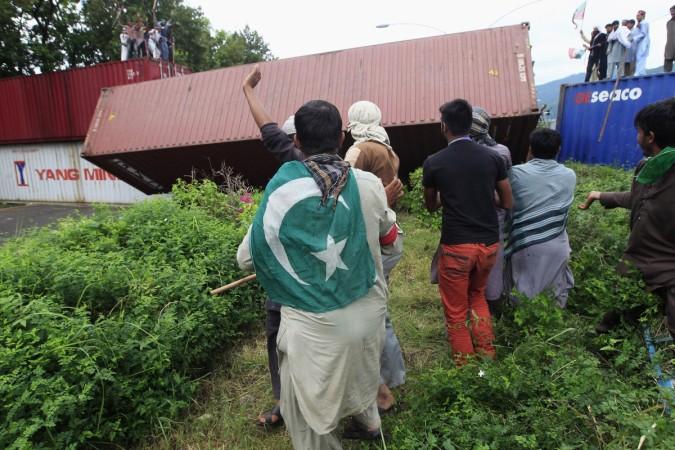
Pakistan government's promise to deliver in return for the billions of dollar of International Monetary Fund (IMF) bailout appear bleak in the wake of anti-estabilishment protests that have gripped Islamabad since mid-August.
Last month, IMF had announced an additional funding of $550 million, besides the $6.67 billion bailout package, reported Dawn.
But, the worsening protest and violence has made IMF and investors lose turned confidence in Pakistan. However, economic advisers opine that the current situation can be brought under control.
"The programme is not in jeopardy at the moment. The IMF thinks if we can wrap this crisis up in a week or so, things will remain on course and normal. But if it goes on any longer, then, yes, we will be in trouble," a top economic adviser told Reuters.
However, last week an IMF team cancelled the plan to visit Pakistan following anti-government protests and violence, Pakistani commerce minister Khurram Dastgir Khan said.
Last month, IMF had endorsed the country's economic policies and revised GDP growth for 2014 to 4.3% from 4.1%.
In September 2013, IMF had saved Pakistan from possible economic catastrophe by lending $6.6 billion over three years with conditions to privatise loss-making state companies.
Worsening Economy, Political Relations and Investments:
Cricketer-turned-politician Imran Khan on 5 August demanded the resignation of current PM Nawaz Sharif and demended for a re-election in the country.
Meanwhile, employees in few parts of Pakistan too have remained off work due to protest. In July and August, about ₹70 billion ($690 million) were raised for development, but a senior official at the Planning Commission said that only 40% of the fund was utilised.
According to Asian Development Bank's economic outlook of Pakistan, high deficits have caused macro-economic imbalances. GDP growth slowed to 3.6 percent in FY 2013 as weak expansion in the large service sector hampered growth in manufacturing sector.
An array of problems:
The country has been witnessing stunted growth in various sectors such as stock market, industries, currencies and fund deficit following political instability.
Bloomberg's take: Pakistan Rupee Falls Most in Five Years Amid Political Deadlock http://t.co/rDywPko7QQ
— IMF Pakistan (@imf_pakistan) August 27, 2014
Balance of payments posted a deficit of $454 million in July 2014, compared to -$125 million in July 2013. http://t.co/Tyr6nSmKkS — IMF Pakistan (@imf_pakistan) August 25, 2014
Financial Times: Political risk knocks Pakistan stocks http://t.co/kcStZsQC52
— IMF Pakistan (@imf_pakistan) August 11, 2014
Besides, the country has also been facing energy crises, which had resulted in riots on the streets of Pakistan cities.









!['Had denied Housefull franchise as they wanted me to wear a bikini': Tia Bajpai on turning down bold scripts [Exclusive]](https://data1.ibtimes.co.in/en/full/806605/had-denied-housefull-franchise-they-wanted-me-wear-bikini-tia-bajpai-turning-down-bold.png?w=220&h=138)



